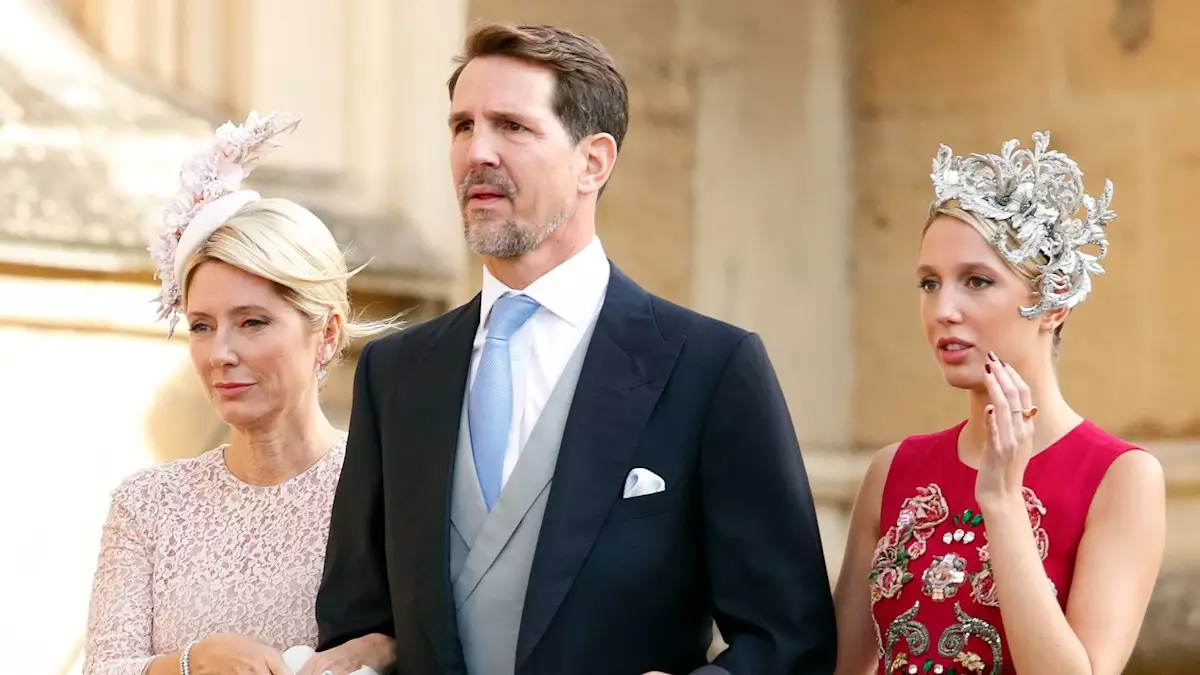The Greek royal family, long in the shadows of their past, is making a concerted effort to reclaim their citizenship nearly three decades after being stripped of this status. This significant step marks an acknowledgment of Greece’s current status as a republic, an evolution that came after the monarchy was abolished in the early 1970s. In a country that has dramatically transformed politically, culturally, and socially since the fall of the monarchy, the royal family’s declaration encapsulates both a gesture of reconciliation with Greece’s modern identity and a personal quest for belonging.
The removal of citizenship in 1994 stemmed from King Constantine’s contentious stance regarding royal property and his insistence on preserving his children’s claim to the throne. The monarchy’s dissolution followed a tumultuous period for Greece, which saw the overthrow of its government by a military junta in 1967, a scenario from which the country struggled to emerge with its democratic lifeblood intact. King Constantine, amid his attempts to counter the coup, found himself exiled, symbolizing a moment when the Greek crown was irrevocably severed from its nation. The subsequent referendum in 1974, which cemented Greece as a republic, completed the full transformation of Greece’s governance.
The royal family’s recent declaration, where several family members notably opted to adopt the surname “de Grece,” serves as a strategic pivot towards acceptance of their historical legacy while simultaneously recognizing Greece’s contemporary state. This bilingual name transition—reflecting both heritage and adaptability—illustrates an effort to bridge their royal lineage with the nation’s republican identity.
The implications of this crisis of identity and the movement to regain citizenship are vast, acting as a litmus test for the broader Greek society, which remains divided in its feelings toward the monarchy. While some hold nostalgia for the royal family, others view it as a symbol of a bygone era deeply intertwined with oppression. An interior ministry official’s remarks about resolving a “historically pending matter” suggest that this re-engagement with the royal family might serve to orient national discourse towards healing rather than division.
Moreover, alongside these societal currents, the family has had personal milestones that contrast starkly with their legal battles. Princess Theodora’s recent marriage to Matthew Kumar encapsulates the public’s interest in royal narratives, serving as a poignant reminder of how traditional institutions can evolve and adapt, especially in the wake of generational change. The wedding, met with celebration and participation from the public, illustrates how the royal family still holds a place in the cultural zeitgeist of Greece—a reminder of their connection to the hearts of the people, notwithstanding the political struggles.
As the family awaits governmental approval for their request to regain citizenship, the process itself must wrestle with the crossroads between heritage and the present. The requirement for the decision to be published in the official government gazette underscores the bureaucratic nature of this transformation, while also anchoring the royal family’s quest in the realities of modern governance.
The development is not merely a reclaiming of identity but also a significant political statement: it reflects a changing tide in public sentiment where royal legacy can harmonize with a contemporary republic ethos. The challenge, however, remains for the Greek population to arrive at a consensus regarding their royal heritage, as opinions about the monarchy continue to stir debate.
Nonetheless, the royal family’s navigation through these waters, marked by declarations, personal celebrations, and possible citizenship restoration, demonstrates resilience—a testament to their desire to coexist with a modern Greece. The public’s engagement during recent events, especially weddings, hints that perhaps the royal family, even without a throne, continues to have relevance in the evolving narrative of Greek identity.
As the family presses forward, they not only advocate for their rights but also imbue the broader conversation about national identity and collective memory for a nation that has weathered political storms and is now rooted in a profoundly democratic spirit.


Leave a Reply